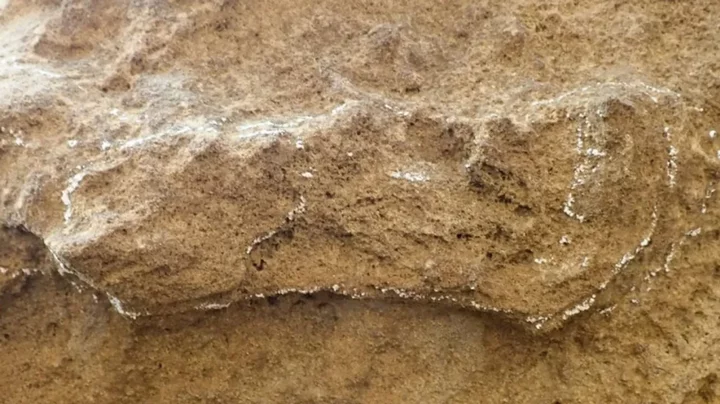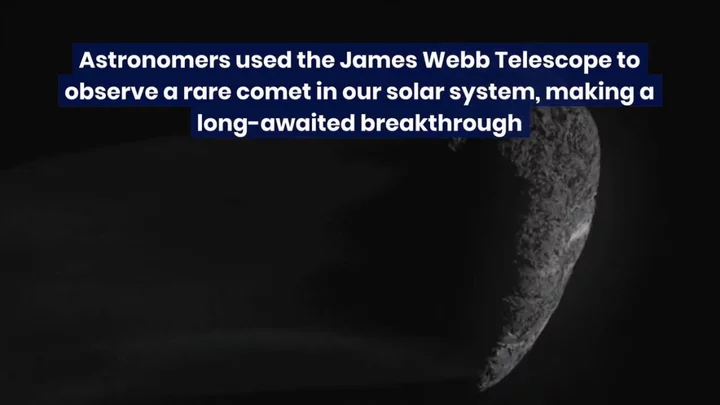
Crypto Exchange Binance Probed by France for Alleged Illegal Practices
Binance, the world’s largest cryptocurrency exchange, is under investigation by French authorities for the alleged illegal provision of
1970-01-01 08:00

Study of oldest footprint ever may change the entire history of humanity
It’s not often that a single scientific discovery manages to change the way we think about the entire history of humanity. An ancient footprint has been newly uncovered, and it turns out that humans were walking around 30,000 years earlier than we previously thought. Two-legged homo sapiens were living in South Africa, it’s been proven, following the discovery of a 153,000 year old track. It was found in the Garden Route National Park near the coastal town of Knysna on the Cape South Coast. Sign up to our free Indy100 weekly newsletter The footmarks outdate the oldest previous discoveries, with the previous oldest found in nearby areas dated at 124,000 years old. The discoveries were made possible thanks to the optically-stimulated luminescence dating method, which analyses how long it’s been since a grain of sand has been exposed to sunlight. Researchers Charles Helm of Nelson Mandela University and the University of Leicester's Andrew Carr wrote in the Conversation: "In 2023, the situation is very different. It appears that people were not looking hard enough or were not looking in the right places. "Today, the African tally for dated hominin ichnosites (a term that includes both tracks and other traces) older than 50,000 years stands at 14. "Given that relatively few skeletal hominin remains have been found on the Cape coast, the traces left by our human ancestors as they moved about ancient landscapes are a useful way to complement and enhance our understanding of ancient hominins in Africa." The scientists involved believe that the area could be home to many illuminating discoveries given the makeup of the soil. They wrote: "We suspect that further hominin ichnosites are waiting to be discovered on the Cape South Coast and elsewhere on the coast. "The search also needs to be extended to older deposits in the region, ranging in age from 400,000 years to more than 2 million years. "A decade from now, we expect the list of ancient hominin ichnosites to be a lot longer than it is at present – and that scientists will be able to learn a great deal more about our ancient ancestors and the landscapes they occupied." Have your say in our news democracy. Click the upvote icon at the top of the page to help raise this article through the indy100 rankings.
1970-01-01 08:00

Surreal AI shoes allow you to 'walk at the speed of run'
Brand new AI shoes have grabbed online attention as the stompers claim to enable wearers to be the "world's fastest shoe" that allows users to "walk at the speed of run." The "Moonwalkers" can accelerate the wearer's walking speed up to 11 km/h (seven miles per hour), a 250 per cent speed increase which means those who use them can walk up to 2.5 times faster. Shift Robotics, an American start-up is the company behind the motorised shoe, and while there are wheels on the design but you don't need to worry about maintaining your balance as they are not like rollerblades because they are not freewheeling and are secured with a magnetic buckle. Sign up to our free Indy100 weekly newsletter While the AI's algorithm picks up on the user's walking behaviour in under 10 steps as it adapts your walking gait. In terms of battery life, the shoes can be charged anywhere, anytime, with any USB-C PD charger and can be fully charged within 1.5 hours for over 6 miles of range. Demonstration videos of the Moonwalkers in action quickly went viral on TikTok as people, with one clip receiving 25.6m views. @shiftrobotics What Are Moonwalkers??? ? ? Moonwalkers are the world’s fastest shoes that allow you to walk up to 7 mph, thats slightly double your average walking speed! ? ? Do you think this is the future of transportation? ?♂️ ? #transportation #transportationdesign #moonwalkers #eshoes #electricshoes #worldsfastestshoes #ShiftRobotics #newtech #newgadgets #electrictransport #electrictechnology The company’s founder and CEO, Xunjie Zhang came up with the Moonwalkers concept after he was almost hit by a car while commuting to work on a scooter. "Like the moving walkways you see in airports, with every step you're making, the conveyer belt moves underneath your feet," Zhang explained to Insider. "The faster you walk, the faster the shoes walk with you". Zhang, who has a Master's in mechatronics from Carnegie Mellon University, worked alongside a team of race car engineers, roboticists, and footwear designers who took five years to build the shoes. People from ages 15 to over 60 have tested the shoes out and Zhang told the publication they were able to walk in the shoes "pretty proficiently" within 10 to 15 minutes of getting them on. On the product's Kickstarter crowdfunding page, it reads: "...a lot of people don't rely on walking. This is surprising, considering it's much safer, more convenient, and better for the environment. Plus it requires no added skill like bikes or skateboards." "The problem is that it was just too slow and inefficient. So we made it our mission to enhance walking instead of replacing it." So far, $329,409 has been raised on the Kickstarter page since it launched in October last year. If you're interested in a pair of the Moonwalkers, they are only available in the US and a pair costs $1399 shift robotics according to Insider, the company has received over 2,000 orders for them as of May 2023. Have your say in our news democracy. Click the upvote icon at the top of the page to help raise this article through the indy100 rankings.
1970-01-01 08:00

Forget about the AI apocalypse. The real dangers are already here
Two weeks after members of Congress questioned OpenAI CEO Sam Altman about the potential for artificial intelligence tools to spread misinformation, disrupt elections and displace jobs, he and others in the industry went public with a much more frightening possibility: an AI apocalypse.
1970-01-01 08:00

Mystery origin of Earth's water has finally been solved
Ever wondered how water first arrived on our planet? Well, it turns out the mystery could finally have been solved. Researchers have undertaken detailed analysis of asteroids and the findings could change the way the scientific community think about origins of water on our planet. Experts at the University of Arizona's Lunar and Planetary Laboratory (LPL) have discovered salt crystals on samples recovered from space. As their findings state, these crystals could only have formed with the presence of water. Sign up to our free Indy100 weekly newsletter The research was undertaken on samples of the asteroid Itokawa in 2005 by the Japanese Hayabusa mission. It suggests that S-type asteroids could be home to more water than previously thought. The new findings led some scientists to claim that water is likely to have arrived on asteroids when our planet was first being formed. The senior’s author Tom Zega said: "The grains look exactly like what you would see if you took table salt at home and placed it under an electron microscope. "They're these nice, square crystals. It was funny, too, because we had many spirited group meeting conversations about them, because it was just so unreal. Zega added: "It has long been thought that ordinary chondrites are an unlikely source of water on Earth. Our discovery of sodium chloride tells us this asteroid population could harbour much more water than we thought." Itokawa is a S-type asteroid, and it’s thought that temperatures on their surfaces were too high for water to form. Shaofan Che, who is the lead study author, said: "In other words, the water here on Earth had to be delivered from the outer reaches of the solar nebula, where temperatures were much colder and allowed water to exist, most likely in the form of ice. "The most likely scenario is that comets or another type of asteroid known as C-type asteroids, which resided farther out in the solar nebula, migrated inward and delivered their watery cargo by impacting the young Earth." Have your say in our news democracy. Click the upvote icon at the top of the page to help raise this article through the indy100 rankings.
1970-01-01 08:00

Inside the race to remake lithium extraction for EV batteries
By Ernest Scheyder LAKE CHARLES, Louisiana The global battle to reshape the lithium industry is sucking in oil
1970-01-01 08:00

Intel Set to Gain $11 Billion Subsidy for German Chip Plant
Intel Corp. is set to receive almost $11 billion in subsidies from the German government for a chip
1970-01-01 08:00

Binance Exits Netherlands After Failed Registration Attempt
Binance Holdings Ltd. said it is leaving the Netherlands after failing to register with the country’s financial authorities,
1970-01-01 08:00

A Cheap Fix to Global Warming Is Finally Gaining Support
Global support for one of the cheapest and most powerful climate actions is accelerating — and it couldn’t
1970-01-01 08:00

Germany in intensive talks with Intel on chip plant - econ ministry
BERLIN Germany is in intensive talks with Intel on plans to set up a new chip-making complex on
1970-01-01 08:00

Exclusive-China's Xi tells Bill Gates he welcomes U.S. AI tech in China
HONG KONG Chinese President Xi Jinping discussed the global rise of artificial intelligence (AI) with Bill Gates and
1970-01-01 08:00

Micron invests another $600 million in China despite partial sales ban
Micron said Friday it was committed to China and would invest 4.3 billion yuan ($603 million) over the next few years in its chip packaging facility in the city of Xian.
1970-01-01 08:00
